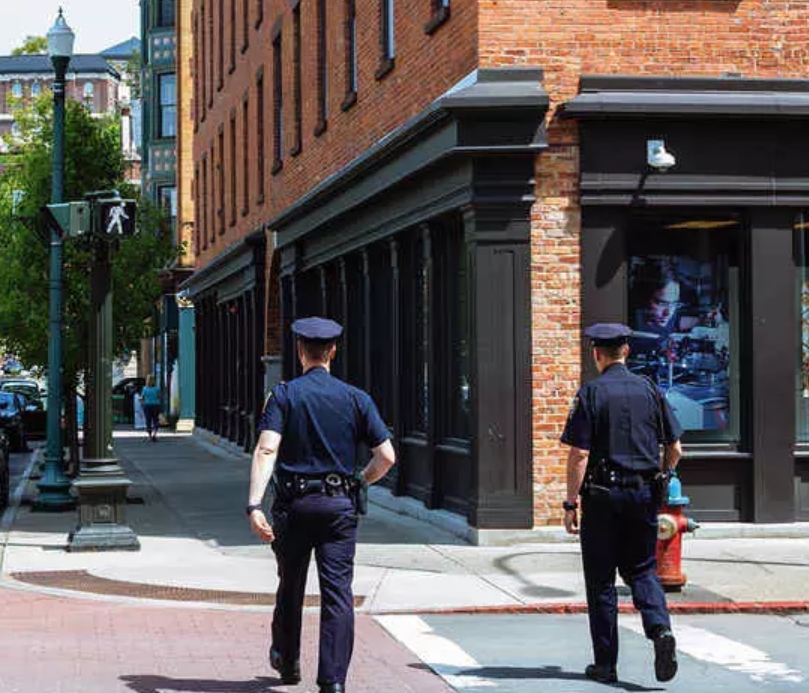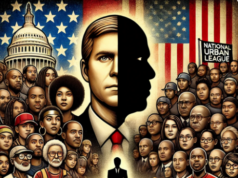Places like Troy used to be lily-white, and most of their police departments still are. That’s a problem for the black and brown people moving from big cities like LA and New York.
As Black families increasingly move into suburban areas, seeking better schools, safer environments, and greater economic opportunities, they are often met with hostility from local police forces. The experience of many Black suburban residents indicates that police enforcement practices are sending a clear message: You’re not wanted here. This blog will explore how policing in suburbs has adapted to demographic changes, why it disproportionately affects Black residents, and how this ongoing issue stems from a long and troubled history between Black communities and White-dominated police forces.
Historical Tensions Between Police and Black Communities
To understand today’s situation, it’s important to acknowledge the longstanding mistrust between Black communities and the police. For decades, police forces in urban centers adopted aggressive “Broken Windows” policing strategies, which disproportionately targeted Black and low-income communities. These tactics emphasized strict enforcement of minor offenses to prevent more serious crimes, leading to mass incarceration and strained community relations. The “War on Drugs” exacerbated these problems, as Black communities were hit hardest by discriminatory policies and sentencing(Housing Matters)(Dame Magazine –).
Today, as Black families move to the suburbs to escape the high crime and over-policing of urban areas, many encounter a continuation of these discriminatory practices in their new neighborhoods. In fact, some research suggests that suburban police departments are not only replicating the aggressive enforcement seen in cities but are sometimes even more severe in their treatment of Black residents(Housing Matters).
Policing in Diversifying Suburbs: A Clear Message
Suburban police forces have historically been tasked with maintaining “quality of life” for their residents, which often translates to enforcing minor offenses such as traffic violations, loitering, and disorderly conduct. As suburbs become more racially and economically diverse, the presence of Black residents has been met with increasing surveillance and scrutiny. Research reveals that Black people in predominantly White suburbs are arrested for these minor infractions at a rate 4.5 times higher than White residents(Housing Matters).
This heightened scrutiny suggests that police officers view Black residents as outsiders or threats to the “status quo” of suburban life. This perception is rooted in long-standing racial biases that associate Blackness with crime, regardless of socioeconomic status. These practices effectively send the message that Black residents do not belong in these spaces, even when they have achieved the same level of economic success as their White counterparts.
Economic and Social Consequences for Black Suburban Residents
The implications of this policing disparity are significant. Black suburban residents not only face the psychological toll of being treated as outsiders, but they also endure economic consequences. Frequent encounters with law enforcement can lead to fines, court appearances, and even job loss due to arrests for minor infractions. These burdens disproportionately affect Black residents, draining financial resources that could otherwise be used for housing, education, and wealth-building(Housing Matters)(Dame Magazine –).
Moreover, the increased policing of Black residents in suburbs undermines the very reason many families move to these areas—to escape high-crime, underfunded urban centers and provide their children with better opportunities. Instead, they find themselves once again navigating the same discriminatory systems they sought to avoid.
The Economic Perspective: How This Impacts African Americans
From an economic perspective, the continued targeting of Black suburban residents reinforces cycles of inequality. The over-policing of Black communities, whether urban or suburban, strips families of the chance to accumulate wealth and access better opportunities. The long-term effects of criminal records, even for minor offenses, hinder employment opportunities and limit upward mobility. Black residents who move to suburbs to escape these issues in cities find that they still face barriers to economic success in their new neighborhoods(Dame Magazine –).
In contrast, White residents who have traditionally dominated suburban spaces benefit from a police presence that protects their property and way of life. These residents are less likely to experience the economic repercussions of minor infractions and are more likely to benefit from the safety and security that suburban policing is meant to provide.
What Can Be Done? Supporting Black Suburban Residents
The issue of discriminatory policing in the suburbs is not one that can be solved overnight, but there are steps that both Black and broader communities can take to combat this issue and support Black suburban residents:
- Promote Community-Led Policing: Encouraging suburban police forces to adopt community-led policing models can help build trust between residents and law enforcement. In this model, officers are trained to engage with residents on a personal level, understanding the needs and concerns of the community rather than assuming that certain individuals or groups are inherently suspicious.
- Increase Black Representation in Law Enforcement: Diversifying suburban police departments to better reflect the communities they serve can help reduce racial biases in policing. When police officers share the same cultural background and experiences as the people they are policing, they are less likely to engage in discriminatory practices.
- Support Legal and Advocacy Groups: Black suburban residents should have access to legal resources that can help them navigate encounters with law enforcement. Advocacy groups can also provide support by bringing attention to policing disparities and advocating for policy changes at the local and state levels.
- Economic Support from Within: Black communities and organizations can create economic programs that help residents pool resources, invest in businesses, and offer financial support to those affected by discriminatory policing. These initiatives can help counteract the economic consequences of over-policing and provide a safety net for Black families.
- Hold Police Accountable: Public pressure on police departments to review and reform their practices is crucial. This can include data transparency on arrests and police interactions, mandatory anti-bias training, and independent oversight to investigate cases of racial discrimination.
Conclusion: A Call for Change
The message that Black suburban residents are not welcome is reinforced by policing practices that disproportionately target them for minor infractions. This ongoing issue is a continuation of the troubled relationship between Black communities and White-dominated police forces, one that has economic, social, and psychological consequences for those affected. To truly create inclusive suburban spaces, police forces and communities must work together to dismantle these discriminatory practices and ensure that all residents are treated equally and fairly.
By addressing these disparities, African Americans can build stronger, more resilient communities that offer both safety and economic opportunity for everyone.








